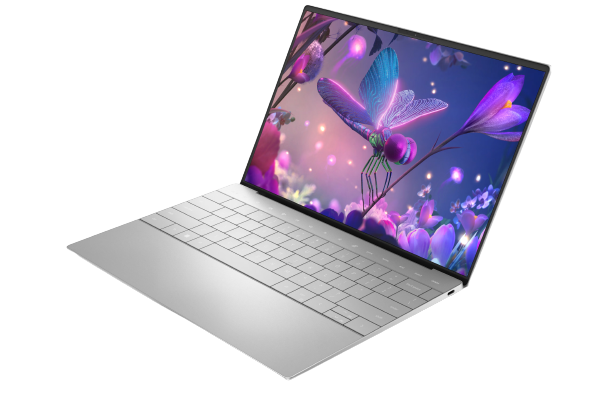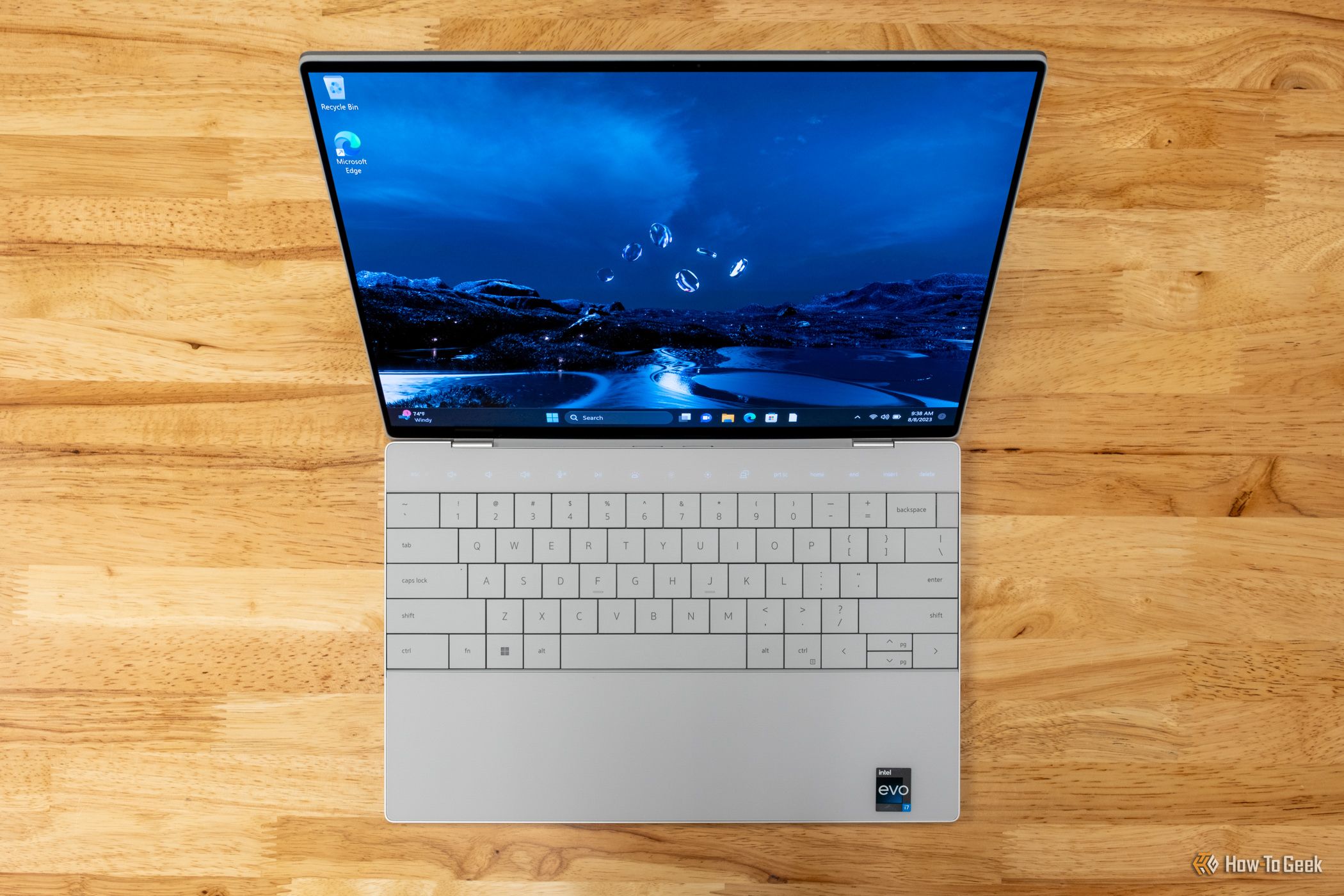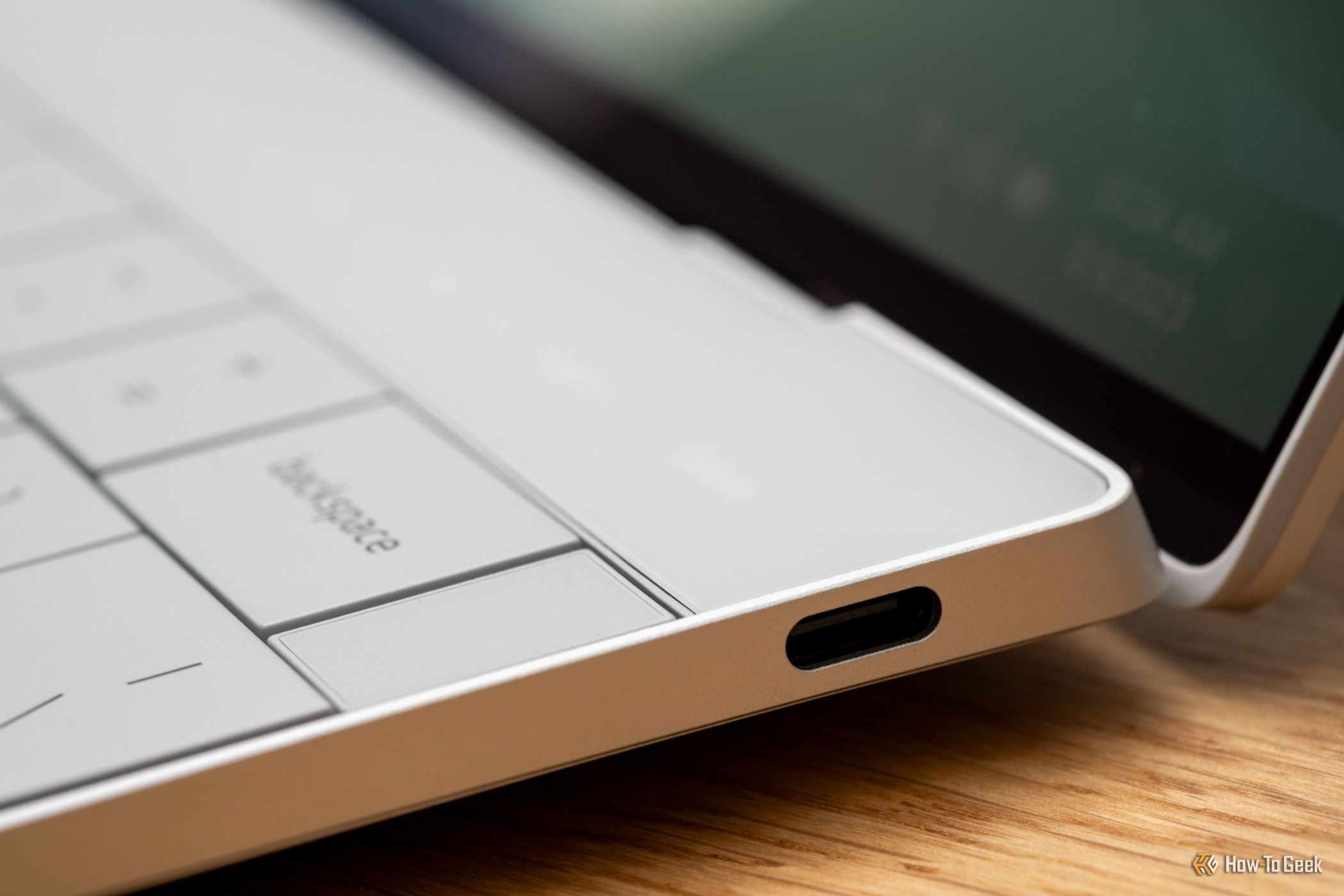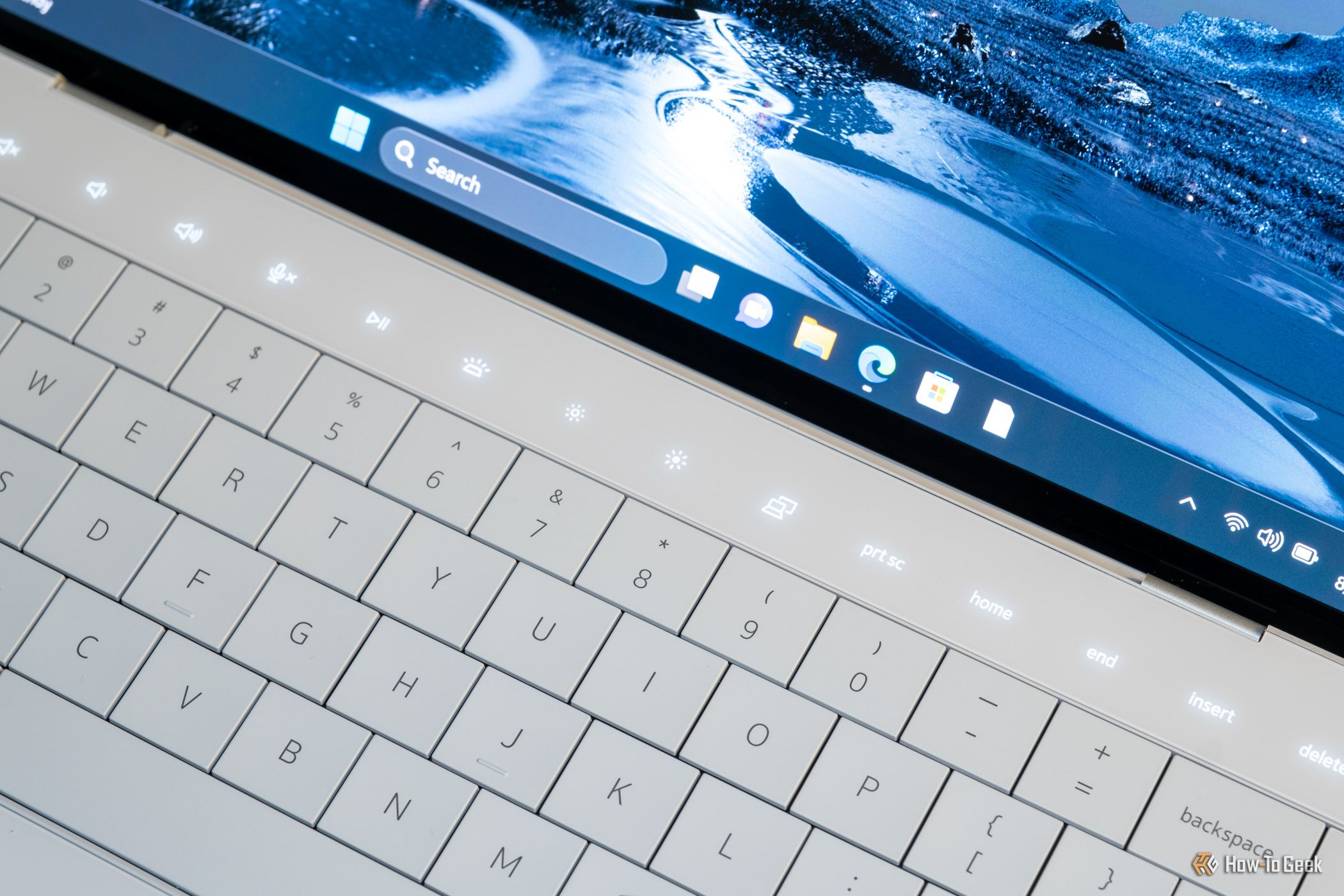
Ultimate Guide to Dell XPS 13 Plus (9320): Premium Business Laptop for On-the-Go Professionals

Ultimate Guide to Dell XPS 13 Plus (9320): Premium Business Laptop for On-the-Go Professionals
Key Takeaways
- The Dell XPS 13 Plus (9320) offers a gorgeous OLED screen and sleek, modern design, making it an attractive choice for professionals on the go.
- The keyboard and touchpad have some flaws, with uneven backlighting and an undefined trackpad area, but overall the machine exudes sophistication.
- Battery life, heat, and noise are disappointing, with the laptop getting warm and fans spinning up, but performance with the Intel Core i7 processor and 16GB of RAM is satisfactory for day-to-day tasks.
Thinking of a typical Windows laptop might not conjure images of a sleek and beautiful machine, but the Dell XPS 13 Plus (9320) is a product to behold. Its compact frame, edge-to-edge display, and sleek, responsive keyboard all make it wildly attractive and an ideal candidate for the traveling professional.

Dell XPS 13 Plus
7/ 10
Dell’s XPS 13 Plus laptop features a 13.4-inch display, 12th Gen Intel Core processors with a modern design.
Operating System
Windows 11 Home or Pro
CPU
i7-1360P
GPU
Intel Iris Xe Graphics
RAM
16GB
Storage
512GB
Battery
3 Cell, 55 Wh
Speakers
Dual stereo speakers
Ports
2 x Thunderbolt 4 (USB Type-C with DisplayPort and Power Delivery)
Adaptor and Battery
60W AC Adapter Type-C
Keyboard
Backlit English Keyboard with Fingerprint Reader
Audio
dual-array microphones
Webcam
720p at 30 fps HD RGB camera, 400p at 30 fps IR camera
Pros
- Gorgeous screen
- Sleek, modern design
- Responsive keyboard
Cons
- Undefined trackpad area
- Often machine got warm with fan noise
Expand
Design and Features of the Dell XPS 13 Plus (9320)

Joe Robinson / How-To Geek
From the first moment I opened the lid, it was hard to ignore how elegant the laptop looked. The keyboard was uniformly monochromatic while the screen glowed vividly and stretched from edge to edge—called InfinityEdge. Even my pre-teen daughter was impressed with the styling of the machine.
However, after some time with the laptop, some of those flourishes faded for me. While the keyboard looked nice while sitting stationary on a table, when I was typing on it at dusk, the backlighting shone unevenly through the keycaps, making it difficult to see well from different angles. Even touch-typing was a little harder on my lap because the blotchy lighting and unfamiliar key sizes distorted the experience. The actual keys felt great, with a strong, rapid response and a large, stable footprint for my fingers to aim for.
Similarly, the edgeless trackpad was a stunner in my first few minutes with it, but over time, that faded to be a little annoying, too. At least daily, I would try to swipe on an area with nothing happening, only to realize my fingers weren’t centered over the touchable area. You might be able to get accustomed to the undefined edges of the touch area after some time, but I don’t think it’s a guarantee. I did like the smooth feel of the entire trackpad and palm rest area, however. It added a touch of sophistication to the machine.
Coming from a MacBook Air, I had no problems with only two USB-C ports on the XPS 13 Plus. I liked that there was one on each side. With this computer’s thin profile and minimal weight, it’s meant to be a travel computer. Even if most of your travel is from room to room, the small number of ports is in line with the kind of person this machine is targeting.
Those on the go are not plugging in a lot of items. It’s mostly just a power cable at an airport or a single monitor cable that can also supply power at their desk. In other words, if the two USB-C ports seem like a deal-breaker, then you probably aren’t the intended audience of this laptop.
Video and Microphone Quality
A primary use of a small, portable laptop will most likely be for video calls and meetings. A laptop that comes in around $1,500 should have an above-average front camera and microphone system, even if they aren’t amazing.
In this case, the camera performed well, but not stunningly. You can see some artifacts and smoothing in both the images below, taken in daylight and in a darker room. The 720p resolution looked very par for the course compared to other thin laptops—including recent MacBook Air models. I would be satisfied with how I appeared in a video call in either lighting condition on the XPS 13 Plus laptop.
I was less impressed by the on-board microphones, which sounded a little distant and produced less volume than I would have liked. While on a voice call with a colleague, he said even though he had to turn up the volume, the actual quality sounded okay. The mics performed well enough to use them instead of needing to grab a headset, but I still wish the results could have been a touch better.
Front Camera in Daytime Lighting

Tyler Hayes / How-To Geek
Front Camera in Lower Light

Tyler Hayes / How-To Geek
Microphone Quality in a Quiet Environment
Your browser does not support the video tag.
Microphone Quality in a Noisy Environment
Your browser does not support the video tag.
Battery Life, Heat, and Noise

Joe Robinson / How-To Geek
One of the most disappointing aspects of this Dell laptop is the battery life, which is interconnected with heat and noise. Through the MyDell Console, you can adjust whether you want the laptop to remain cool, quiet, focused on performance, or an optimized middle ground. Too often, my wrists got warm and sweaty in the optimized setting with occasional lag in Slack, Apple Music, and Edge when those few programs ran simultaneously.
The cool mode helped my sweaty problem but spun up the fans to create more noise. You see the problem here. Throwing caution to the wind and running in an ultra-performance mode just meant that battery life was only a couple of hours.
Each of the modes accomplished its objective, but the optimized setting couldn’t satisfy a happy medium between them. At least it couldn’t satisfy my desire to have a fast, silent, and cool device.
However, Apple’s MacBook Air M2 model accomplishes all of these things, making it hard to ignore as a direct competitor—even if the machines run different operating systems.
I connected the laptop to a 27-inch 5K display. People who want a big screen while at home or the office will be glad to know that the computer handled the Thunderbolt connection well and adapted everything perfectly for the large screen. But doing this caused the Dell XPS 13 Plus to turn into a white noise machine as its fans spun up and whooshed steadily on my desk. Waiting for the fan on this machine to kick on at random times often felt like playing roulette and betting on black, only to see red come up more than expected.
With an Intel Core i7-1360P processor and 16GB of RAM, this machine’s performance was very satisfactory for day-to-day use. The biggest problem was its battery life tended to wind down quicker than expected, likely due to the fine performance. Is it worth putting the laptop to sleep after three minutes or turning the screen off after three minutes and letting the computer control the overall energy efficiency? If you’re trying to eke out as much battery life as possible, then the answer is yes. I did use Nomad’s newest 130W charger with the laptop, and from 8% to fully charged, it only took 2 hours.
Price and Availability of the Dell XPS 13 Plus
The Dell XPS 13 Plus (9320) with OLED is available at Dell and retails for $1,699 but goes on sale for as low as $1,449. The computer is available in a lower-cost option that doesn’t include the OLED screen, which starts at $1,499 but is on sale for $1,249. The laptop is also available in a non-plus model, which further lowers the cost. Of course, different spec options exist to customize the machine across the different models, too.
While it would be a bummer to miss out on the OLED option, the $1,249 sale price is more reasonable for this machine.
Should You Buy the Dell XPS 13 Plus (9320)?

Joe Robinson / How-To Geek
The stylings of the Dell XPS 13 (9320) were great. It looked modern and attractive while also remaining lightweight and portable. The problem was that it had enough trade-offs with battery life and fan noise to not be a slam dunk. In this particular case, the blame falls more on Intel than Dell. The processor and graphics can likely be pointed to for the heat, fan noise, and disappointing battery life in each instance. If you need a Windows laptop, this is a fine choice. Staring at the OLED screen all day wasn’t a difficult task after all. If you’ve also never experienced a generally cool and completely quiet machine, this one will be no different from your past experiences. But if you don’t need a Windows machine—because macOS should run all necessary productivity apps—you should consider a MacBook Air M2 .

Dell XPS 13 Plus
7/ 10
Dell’s XPS 13 Plus laptop features a 13.4-inch display, 12th Gen Intel Core processors with a modern design.
Also read:
- [New] The Ultimate List Best for Android Pics
- [Updated] Pinnacle of Plotting The World's Best 8 Schools for Writers
- [Updated] Unlocking Advanced VFX Techniques Expert Tips on Chroma Key (KineMaster)
- [Updated] Vimeo Vs. YouTube A Content Creator's Guide
- 2024 Approved Understanding and Utilizing Phantom’s Time-Dilation
- Fixes to Get Your Webex Microphone Up and Running Again
- Harnessing the Power of Dynamic Images in iOS
- How To Transfer WhatsApp From iPhone 12 to other iPhone 11 Pro devices? | Dr.fone
- How to Unlock Nokia 105 Classic PIN Code/Pattern Lock/Password
- In 2024, Streaming Stats How Much Does PewDiePie Earn?
- In 2024, The 6 Best SIM Unlock Services That Actually Work On Your Tecno Spark 10 Pro Device
- In 2024, Unveiling Secrets Phantom's Slow Motion Techniques
- The Essence of Pixiz Crafting Compelling Stills-to-Video Transformations for 2024
- Top-Rated Apple Watch Models : Comprehensive Reviews & Buyer's Guide | TechAdvisor
- Unveiling the Power of SRT in Broadcasting for 2024
- Upgrade Clips Adding Effects to Videos (PC/Mobile) for 2024
- Video Fixer Software for all Corrupt Videos of Tecno Pop 8
- Title: Ultimate Guide to Dell XPS 13 Plus (9320): Premium Business Laptop for On-the-Go Professionals
- Author: Mark
- Created at : 2024-12-22 22:15:13
- Updated at : 2024-12-25 00:03:03
- Link: https://some-guidance.techidaily.com/ultimate-guide-to-dell-xps-13-plus-9320-premium-business-laptop-for-on-the-go-professionals/
- License: This work is licensed under CC BY-NC-SA 4.0.